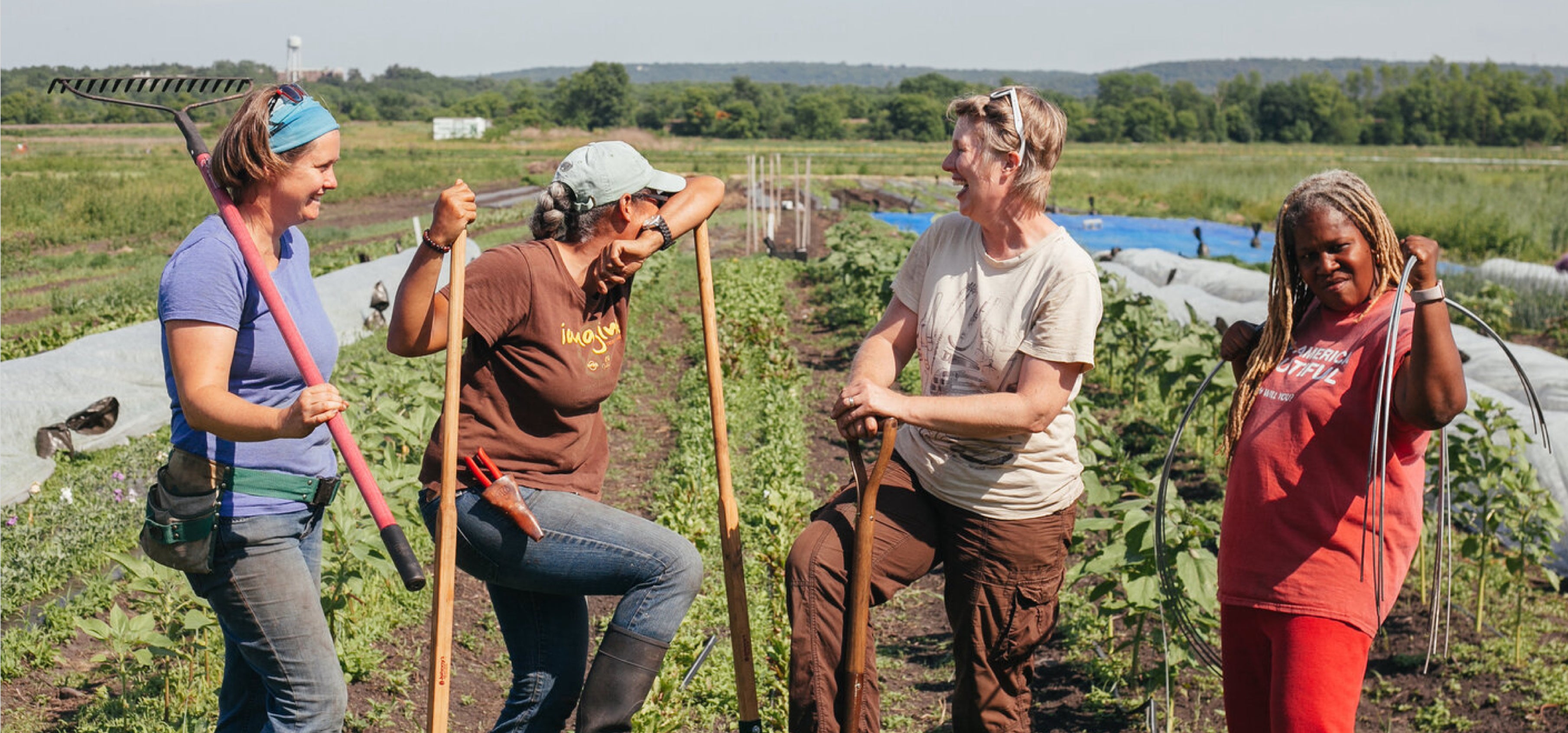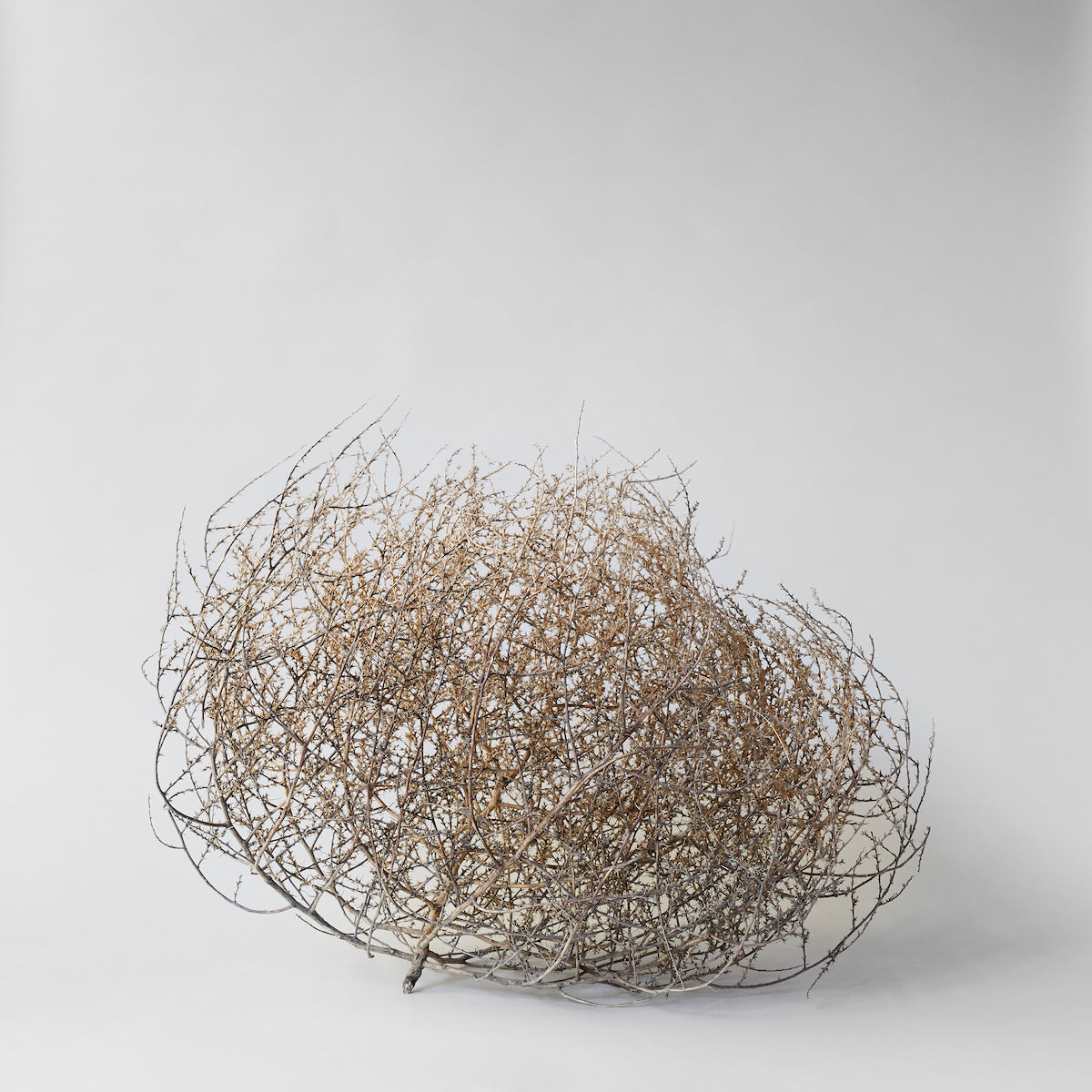Gifting has never been easier
Perfect if you're short on time or are unable to deliver your gift yourself. Enter your message and select when to send it.
Story by Diane Keeler / Photography by Rise and Root

Karen Washington has spent decades promoting urban farming as a way for all New Yorkers to have access to fresh, locally grown food. As a 26-year Bronx resident Karen worked with local neighborhoods to turn empty lots into community gardens and has been a long-time activist for garden protection and preservation and food justice. Karen is one of 4 co-founders of Rise & Root Farm, a five-acre farming cooperative run by women that is literally rooted in social justice. Through the healing power of food and farming, Karen and her fellow farmers continue their food justice work by growing food and community beyond the city boundaries.

“I grew up with the idea that farming was slave work,” says Karen Washington, a pioneer in the urban farming movement and a passionate advocate for food justice. Washington’s resume could function as a list of the most important and influential gardening and farming organizations in the country: She is a member of the Board of Trustees at the New York Botanical Garden, the former president of the New York City Community Garden Coalition, and the co-founder of both La Familia Verde Garden Coalition and Black Urban Growers.
While she is now a co-owner and farmer at Rise and Root Farm in bucolic Orange County, 60 miles northwest of New York City, she remains as invested as ever in ensuring that everyone has access to the benefits of healthy food — and in rewriting American food history.
Pictured: Urban Farming Pioneer Karen Washington

“People of color have never been recognized for our contributions to American agriculture,” she says. “Our story has always been the story of slavery. But we were brought here because of our knowledge of agriculture. We invented many of the tools that are still used today, but we never got the credit. We planted the seeds of food in this country. And when you acknowledge that, it changes the whole conversation around our place in the story of the American experience with food.”
Pictured: Seedlings at Rise & Root Farm
– Karen Washington
A physical therapist by training, Washington began gardening when she moved to the Bronx in 1985. “I had a backyard, and instead of putting a lawn on it or cementing it, I decided I was going to grow some food,” she says. “I had no experience whatsoever. No one to turn to — my parents weren't farmers, my grandparents weren't farmers.” She wanted to grow three vegetables in particular: “Collard greens, of course, because they’re a staple in the African-American diet,” she says. “Eggplants, because eggplant seemed funky — you know, eggs on a plant? And tomatoes. I hated tomatoes. The tomatoes we had were pale and tasted like cardboard."

The season's first tomato crop at the farm

The first tomato I grew changed my world. It was red, and when I tasted it, it just blew my mind. I’d never tasted anything so incredible. And it gave me the bug.” She moved fully into farming two decades later, after attending a six-month program sponsored by the U.S. Department of Agriculture’s Center for Agriculture and Food Systems. “They teach you how to grow on a farm, to grow a community garden, and to grow in an orchard,” she says.
"Working in community gardens, the plots are small — and I remember for the first time being able to work on a farm of nine acres, and that was scary. I said to myself, ‘Karen, either you’re going to get on a plane and go home — or if you’re going to go on this journey, you’re going to face your fears.’ So, I put my knapsack down and I went to both fields and I put both my hands into the soil, to find that connection. And right then and there, I knew that I made the right decision.”
Pictured: Preparing the beds for spring plants in the Rise & Root Farm Greenhouse

Rise & Root Farm produce for sale at the Union Square Greenmarket, NYC
For Washington, farming is a spiritual practice. “It's not just about growing,” she says. “When I'm on the farm, I sit back and think about the people that were there thousands and thousands of years ago. And you give homage, as a farmer, and gratitude, to be on that land — not to own it, but to be stewards of the land, to take care of the land for the next generation. Sometimes I’ll just sit in a field, and just give the universe thanks and praise that I’m farming on this land, and that I’m taking care of this land, because the land has been given to me to take care of. And I just give thanks to the universe for allowing me to do what I do, and in doing it, to find joy.”

Women farmers at Rise & Root Farm master many skills including harvesting honey, growing tomatoes, and planting and nurturing seeds.
Your Shopping Cart is Empty
Browse our latest collection or check your saved favorites to add more items to your cart.






Manage your profile, track your orders, and enjoy a seamless shopping journey with us.